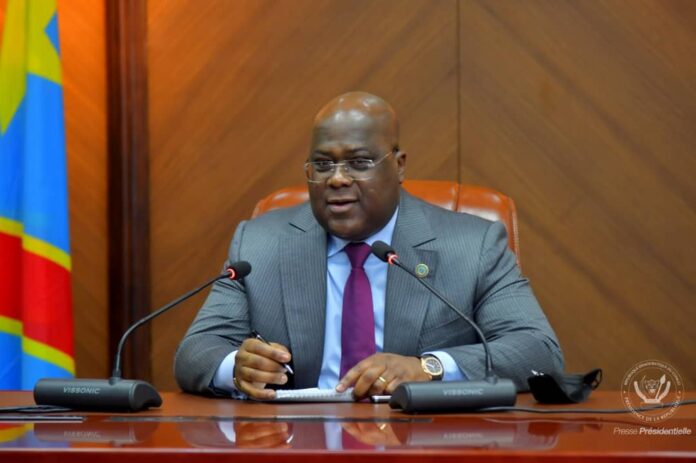Congolese and foreign fighters were involved in the attempted coup in Kinshasa as the army asserted control; several suspects detained
The Democratic Republic of Congo’s army announced it has successfully thwarted an attempted coup against President Felix Tshisekedi in the capital, Kinshasa. Brigadier General Sylavin Ekenge, the army spokesperson, confirmed on state-run RTNC TV that the situation is now under control and several suspects have been detained.
Early Sunday morning, armed men attacked the residence of Vital Kamerhe, the former chief of staff and a close ally to President Tshisekedi. Witnesses reported that around 20 assailants in army uniform stormed Kamerhe’s house, leading to an exchange of gunfire. Two guards and one assailant were killed during the attack, according to Kamerhe’s spokesman and the Japanese ambassador in Kinshasa.
The assailants also occupied the Palais de la Nation, the office of the President of the Republic, a highly secured area guarded by the Republican Guard. In response, Japan’s ambassador in Kinshasa advised Japanese nationals to stay indoors.
Local media reports indicate that the attackers were members of the New Zaire Movement, linked to formerly-exiled politician Christian Malanga. The BBC obtained a video showing Malanga speaking in Lingala, stating, “We the military are tired, we cannot march together with Vital Kamerhe and President Félix Tshisekedi.”
President Tshisekedi has not yet commented publicly on the attempted coup. He was re-elected for a second term in December’s disputed elections, securing about 78% of the vote. The election period was marked by violence, with nearly 20 people killed in election-related incidents.
DR Congo, despite its vast mineral wealth and large population, continues to struggle with conflict, corruption, and poor governance. Much of the country’s natural resources are located in the east, a region plagued by ongoing violence despite President Tshisekedi’s efforts to impose a state of siege, negotiate ceasefires, and bring in regional troops.
The attempted coup underscores the persistent instability in DR Congo. The involvement of both Congolese and foreign fighters highlights the complex and volatile political landscape. The military’s swift action in quelling the coup attempt reflects the high level of threat faced by the government.
In recent years, President Tshisekedi has faced significant challenges in addressing the country’s deep-rooted issues. His administration has grappled with managing the ongoing conflict in the eastern provinces, where numerous armed groups continue to operate despite various peace initiatives. The state of siege, a measure intended to curb violence, has had limited success, and regional military cooperation has not fully stabilized the area.
Analysis :
Economically, DR Congo’s wealth in natural resources has not translated into prosperity for its citizens. Corruption and mismanagement have hindered economic development, leaving the majority of the population in poverty. The attempted coup adds another layer of uncertainty to an already fragile economic and political environment.
Politically, the failed coup reflects the deep divisions and dissatisfaction within the military and political factions. The New Zaire Movement’s involvement suggests discontent among certain groups who feel marginalized or opposed to the current leadership. This internal strife poses a significant challenge to President Tshisekedi’s ability to govern effectively and maintain stability.
From a local perspective, the impact of the coup attempt on the civilian population cannot be overstated. The threat of violence and political instability exacerbates the daily struggles of ordinary Congolese, who already face hardships due to poor infrastructure, limited access to basic services, and ongoing conflict. Rebuilding trust and confidence in the government will be crucial for moving forward.
Gender and minority perspectives are also critical in understanding the broader implications of the coup attempt. Women and minority groups often bear the brunt of political and social upheaval. Ensuring their protection and addressing their specific needs in the aftermath of such events is essential for fostering a more inclusive and resilient society.
The DR Congo army’s successful thwarting of the attempted coup against President Tshisekedi highlights the ongoing instability and complex challenges facing the country. The incident underscores the need for comprehensive strategies to address political divisions, economic mismanagement, and security concerns. Building a stable and prosperous DR Congo will require sustained efforts from both the government and the international community to support peace, development, and inclusive governance.
